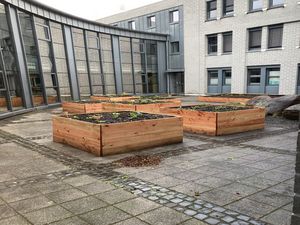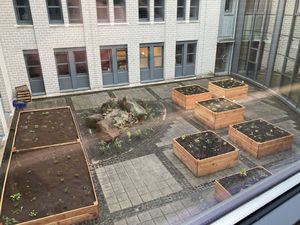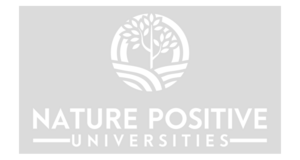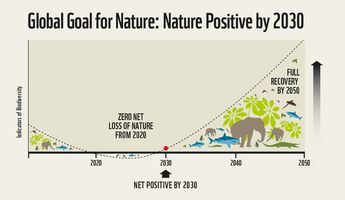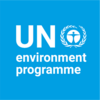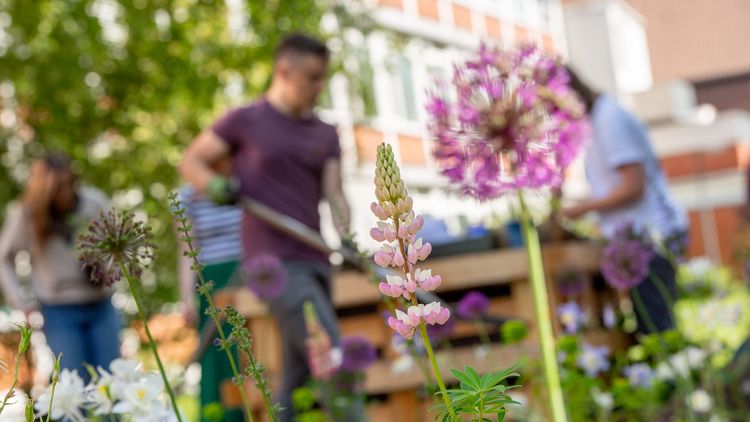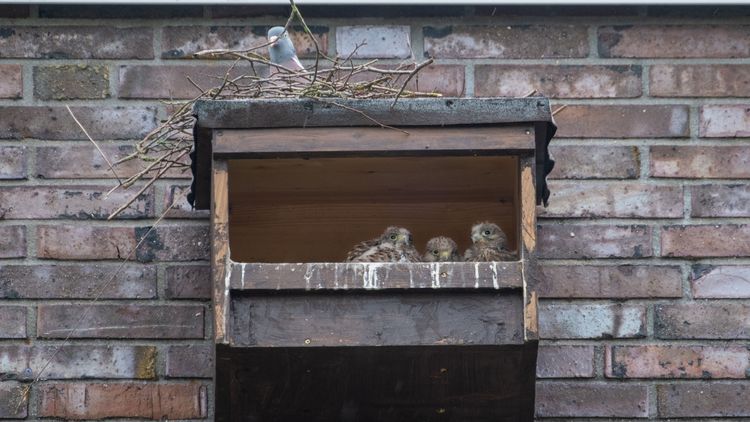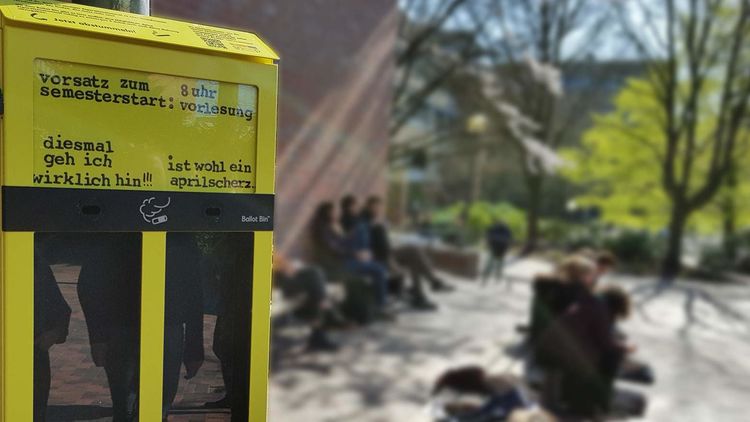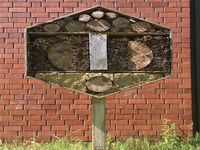Ecology and Nature Conservation
Become a Student Ambassador
Are you studying at the University of Oldenburg and would like to become part of the Nature Positive University?
Then register here as a Student Ambassador, become part of the network and get in touch with us to make the university more nature-friendly and environmentally friendly!
Ecology and Nature Conservation

Sustainability and environmental protection are not topics that are dealt with in a vacuum at Oldenburg University. Consideration of the campuses and properties as a habitat for not only people but also flora and fauna is also coming more and more into focus.
Raised beds in the inner courtyard of building A05
Initiiert und umgesetzt von Studierenden
On 13 and 14 October, a lot of drilling, screwing and shovelling took place in the inner courtyard of building A05. Following an initiative by the "Sustainability Economics and Management" Student Council, the courtyard was made more ecological by building numerous raised beds and planting them with insect-friendly perennials. The Student Council is also responsible for the further maintenance of the beds.
The project was financed by the Department of Economics and Law, with implementation supported by the University of Oldenburg's climate protection management team.
Nature Positive University
Since 1 December 2022, Carl von Ossietzky University Oldenburg has been a founding member of the global network of Nature Positive Universities - a programme initiated by the United Nations Environment Programme and Oxford University. In doing so, the University of Oldenburg acknowledges the great importance of biodiversity and nature conservation and commits to taking effective action in this area.
In the context of COP15, the UN Conference on Biodiversity, the network and the initiative were presented with a video contribution.
Becoming Nature Positive University
Nature Positive means halting and reversing the loss of natural areas so that species and ecosystems can recover. For higher education institutions, this means offsetting harmful impacts on species and nature and restoring ecosystems to have a positive impact on nature.
This does not only refer to the design of the campus and university operations, but should also be taken into account in teaching and research as well as in the consideration of the university's supply chains and networks.
To be Nature Positive , the baseline of biodiversity should be measured, a target decided and clear actions taken.
Nature conservation on campus
Campus garden
The "CampusGarten"is a student project of the AStA's sustainability department, which has been set up in Haarentor on the grounds between buildings A10 and A07. Once a week, a group of students comes together here to garden together. The university supports the project not only with the space, but also financially. In return, it is permanently accompanied by a course.
Nesting boxes
Various nesting boxes hang on the university's sites to provide birds with a place to nest. For example, swifts or starlings find a home at Oldenburg University during the breeding season. A nesting box for kestrels has been hanging on the NeSSy research building since July 2017 - a project that was implemented together with NABU Oldenburger Land.
ballot bins
Initiated by the student initiative sneep two ballot bins were installed on the Haarentor campus in April 2019. These oversized ashtrays are intended to help reduce the number of cigarette butts that end up on the ground. The ballot bins are also an opinion monitor that encourages participation. They consist of two separate chambers - each one represents an answer option and has its own hole for voting by butt. The current voting status is visible at first glance, as the front of the bins is transparent.
Insect hotels
There are a total of five bee hotels on the Wechloy Campus, the Haarentor Campus and in the University Botanical Garden. They are a result of the "BeeScapes" project funded by the European Regional Development Fund - a project that has created more diverse habitats for insects and is intended to counteract the decline of the six-legged crawlers.
Measures from climate action concept
The following list of measures in the field of action Ecology of the Campus is an excerpt from the Integrated Climate Action Concept. A more detailed view of the respective sub-measures can also be viewed there.
- "Forest Campus”
- Facade & roof greening
- Develop a comprehensive utilisation concept for all areas
- Biodiverse design of green spaces
- Promote environmental education on campus




